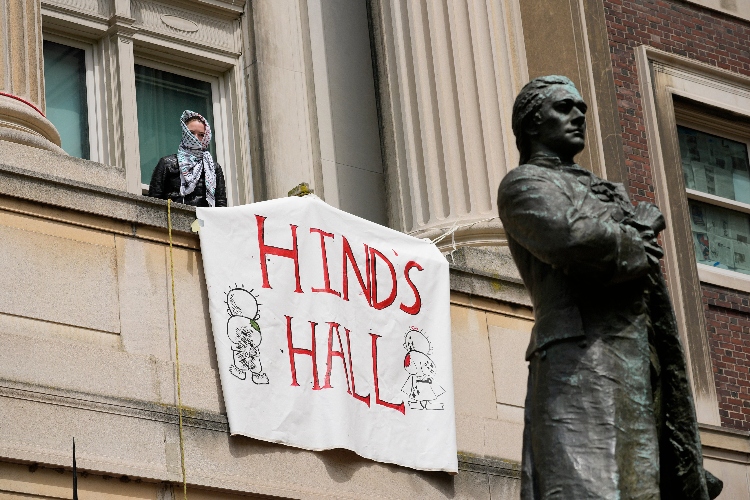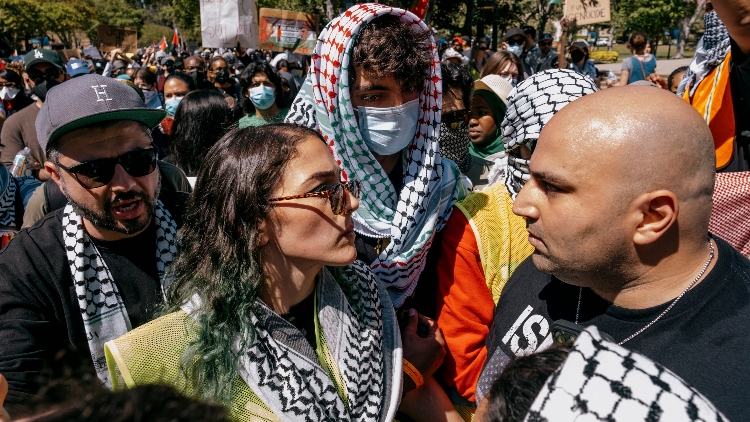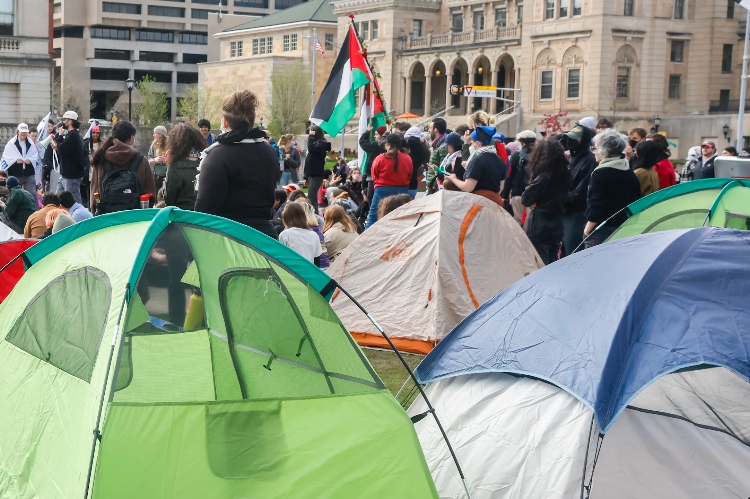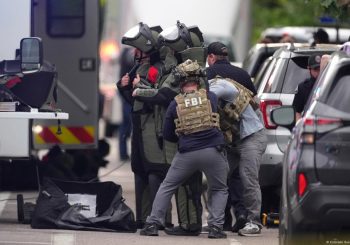In recent weeks, college campuses across the United States have witnessed waves of pro-Palestinian demonstrations, with violence flaring on Wednesday 1 May, and Thursday 2 May following police raids and attacks by pro-Israeli protestors.
Hundreds of students have been arrested across the US as campus administrators and police cracked down on rallies supporting Palestinians and calling for divestment of universities from Israel.
University leaders, along with authorities from the United States and Israel, have claimed that the protests are “anti-Semitic”, as asserted by Israel and its supporters. While a few individuals within the protests have made anti-Semitic remarks or threats, the organizers, including Jewish students, stress that their movement is peaceful and seeks to advocate for Palestinian rights and voice opposition against the ongoing conflict.
The protests, which first started at Columbia University, have since spread to approximately 30 campuses across the US, with tensions escalating in recent days.
Columbia University, located in New York City, has been at the epicenter of the demonstrations. Police have made 300 arrests, including dozens of student demonstrators who occupied campus buildings.
On Wednesday, May 1, protesters occupied Hamilton Hall, renaming it Hind’s Hall after [in honor of six-year-old Hind Rajab, who was killed alongside her family by Israeli forces in Gaza] and issuing demands for divestment, financial transparency, and amnesty.

Currently, police and private security personnel are present at nearly all entrances. The streets are lined with sturdy barricades and students are gathering their belongings and departing for their homes, as classes and exams have been canceled.
Columbia University President Minouche Shafik has issued a statement “emphasizing the importance of safety, academic freedom, respect for others’ rights, and explaining that the atmosphere on campus has been difficult for some Jewish students and others while urging the encampment to disperse and explore alternative solutions.”
The demonstrations have also extended to other prominent universities such as the University of California, Los Angeles (UCLA), Fordham University, the University of Wisconsin at Madison, and the University of Arizona in Tucson.
UCLA saw one of the most severe incidents of violence, as pro-Israeli groups violently attacked a pro-Palestinian encampment on campus. The confrontation left 15 people injured, with one person requiring hospitalization.
This prompted the arrival of the Los Angeles Police Department and additional law enforcement agencies, such as the California Highway Patrol and the Los Angeles Sheriff’s Department, to restore order to the situation.
As a result, on Wednesday, May 1, UCLA canceled all classes after a night of unrest on campus over the war in Gaza.

Arrests of pro-Palestinians have also taken place at other universities, including Fordham University, the University of Wisconsin at Madison, and the University of Arizona in Tucson.
Glimmer of Hope for Protesting Students
In the midst of escalating pro-Palestinian protests on US campuses, Brown University reached a rare agreement with demonstrators.
The students agreed to dismantle their encampment, and the university committed to discussing and voting on divesting funds from companies linked to the Israeli military campaign in Gaza.
While the encampment at Brown will end, the University will still hold disciplinary proceedings and investigate reports of harassment and discrimination related to the protests.

The number of arrests nationwide has surpassed 1,300, with more students being detained during the latest clashes.
The Conflict So Far
After a surprise attack conducted on 7 October by Hamas on a number of southern Israeli towns which resulted in the deaths of an estimated 1,200 people and more than 220 being taken hostage by Hamas, Israel launched a retaliatory bombing campaign against what it describes as ‘terrorist targets’ in the Gaza Strip.
It has been 207 days since the war in Gaza started and more than 33,686 Palestinian fatalities, with an additional 76,309 injuries.
The priority of the Egyptian government since the beginning of the conflict has been deescalation and the securing of a path for aid to enter the Gaza Strip through the Rafah crossing. Israel bombed the crossing at least six times, and limited aid trucks have crossed to Gaza so far, which UN officials warn is insufficient amid dire humanitarian conditions.






Comments (0)